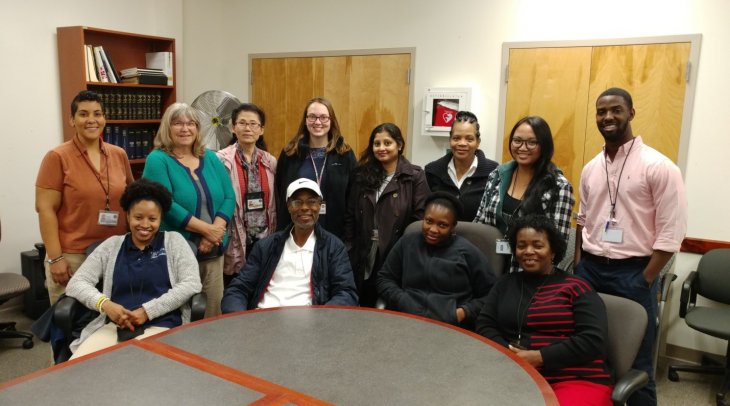Public Health Heroes: Environmental Inspection Services extends far beyond restaurant closures

Each day the Baltimore City Health Department’s (BCHD) Bureau of Environmental Health, Environmental Inspection Services (EIS) carries out routine inspections at some of Baltimore’s 5,000 food establishments to ensure that health standards are being met and to certify that businesses are doing their best to keep their customers safe from food-borne illnesses. Contrary to popular belief, their goal is not to shut down food establishments.
“The last thing that we want to do is shut down somebody’s business,” said Jessica Speaker, BCHD Director of Environmental Inspection Services.
Their mission is simple: to help Baltimore business owners succeed through education and routine evaluation. Inspectors do their best to keep businesses operating, issuing cautionary advice and violation notices so that problems can be resolved.
EIS inspects food establishments, among other things, on the basis of safe food handling, meat and poultry preparation, equipment and temperature control and accurate food labeling. As a result of these routine visits, EIS inspectors often form relationships with Baltimore business owners and they are proud to watch their success from year-to-year.
“True success comes when the inspector can correct unsafe practices through education. Shutting a business down for even a short time can really affect a business’ bottom line, not to mention the loss of income it causes to those employed there,” said Assistant Commissioner of Environmental Health Mary Beth Haller. “More often than not, they see the success of hard-working, local business owners during their inspections.”
The EIS team encourages safe food practices for all Baltimore residents.
Below are tips for anyone preparing to cook a Thanksgiving turkey at home this holiday season:
- Thaw turkeys in the refrigerator, in a sink of cold water, or in the microwave. When the turkey is left out at room temperature for more than two hours, its temperature becomes unsafe and bacteria can grow rapidly;
- Kill bacteria that causes foodborne illnesses by fully cooking the turkey until it reaches 165 °F;
- Use separate cutting boards, plates, and utensils when handling raw turkey to avoid cross-contamination;
- Refrigerate leftovers within two hours to prevent bacteria from growing on food; and
- Avoid consuming leftovers that have been left in the refrigerator for longer than 3 or 4 days. Use the freezer to store leftovers for longer periods of time.
To learn more about BCHD Environmental Health programs, click here.
